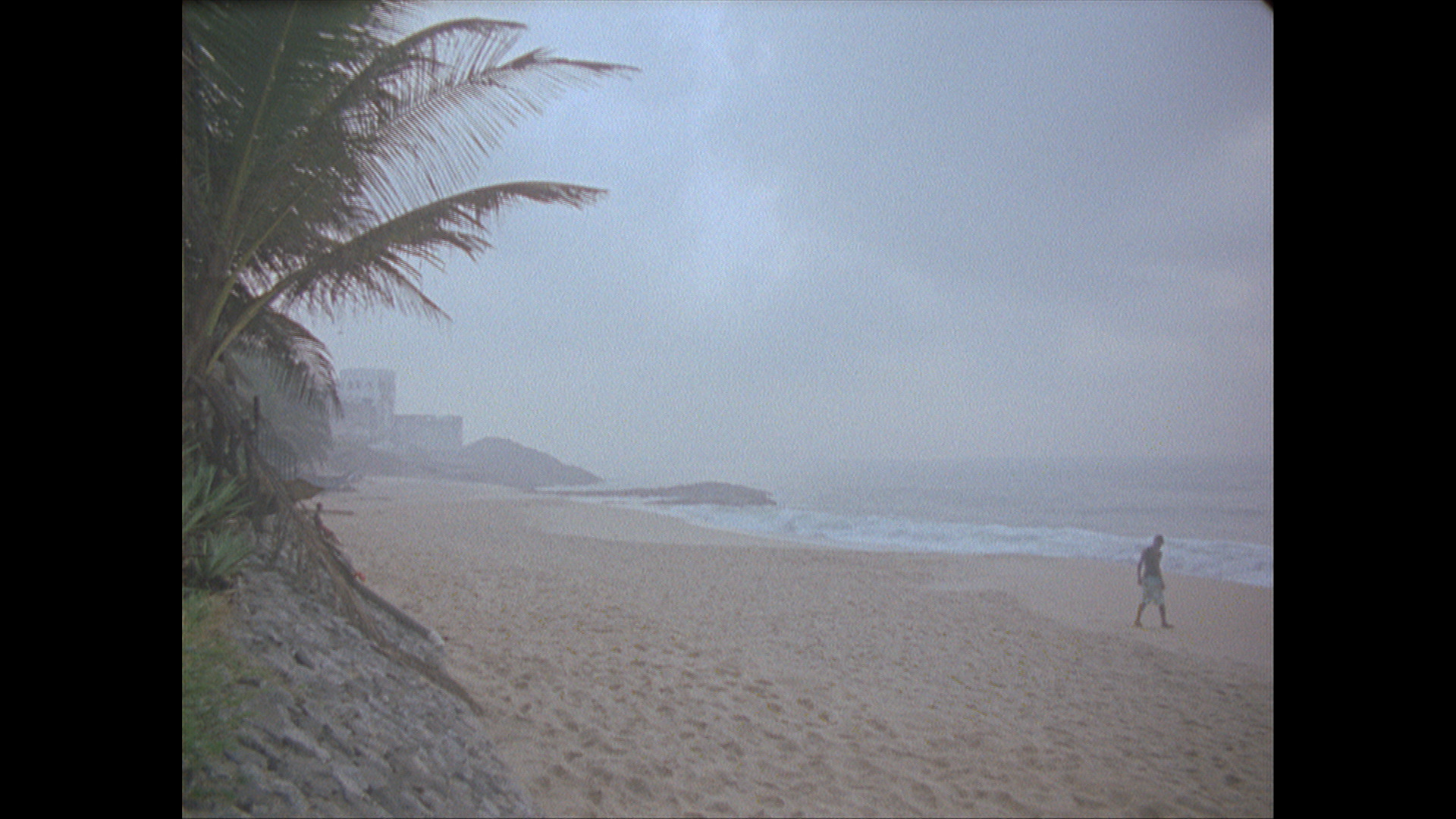We are delighted to welcome Zach Vanes of the Video Data Bank to write for us. In this essay, Vanes discusses The Diaspora Suite, a series of films on the African diaspora by Video Data Bank artist Ephraim Asili. Screening this week at Conversations at the Edge, these films bring together archival research and Asili’s travels to chart cultural connections across time and space.

Ephraim Asili’s five-part Diaspora Suite was created over the course of seven years. While every film in the series has a unique rhythm, each is built around a specific amalgam of footage shot in American and international locations–each site an important within the African diaspora. In Forged Ways (2011) it’s Harlem and Addis Ababa, Ethiopia; in American Hunger (2013), it’s Philadelphia, Ocean City, and Cape Coast, Ghana; in Many Thousands Gone (2014), it’s Harlem again and Salvador, Brazil; in Kindah (2016), it’s Hudson, New York, and Jamaica; and in Fluid Frontiers (2017), it’s Detroit and Windsor, Canada.
Asili edits his 16mm films by mixing and matching footage from the two locations. Often, he shuttles the viewer thousands of miles with his cuts. One trip fragments into dozens, each with differing emotional textures and tenors. Sometimes, as in the self-deprecating end of American Hunger, the effect can be humorous. Here, Asili cuts between a foam-headed Mr. Frosty mascot in Philadelphia and a group of Ghanaian school kids. Both wave to the camera with big smiles–only in America the grin is painted on. At other points, the change of location communicates an bemusement toward the isolation of American life. For example, in Kindah, an empty apartment and looming brick walls in Hudson provide a somber note of impasse in comparison to a constantly moving Jamaican parade. More often than not, transitions between the American locations and their international counterparts happen so smoothly that the differences are registered only through Asili’s subtle inclusions of national markers–an American flag in the distance or a Yankees hat in the crowd. Through the disidentification brought on by the incessant cutting between “here” and “there,” Asili encourages the viewer to recognize difference as a projection of lingering colonial fantasy and disrupts geopolitical borders and the visual regime that supports them.
The most recent work in the collection, Fluid Frontiers, provides both a fitting end to the cycle and a marvelous leap forward. Asili reaches for more than cinematic hybrid cities and countries. Against the two geographic locations that anchor the film (Detroit and Windsor), Asili creates a third, cinematic, space– the black screen. In an essay on the films of Kevin Everson, Emmanuel Burdeau suggests: “The black screen is the abyss where…cinema catches its breath: an annihilation, but also a reservoir of images, the neutral gear through which every film passes before starting up again.”
Throughout the Diaspora Suite the black screen is at once a cinematic wellspring and bearer of the inscriptions of history and theory. Starting with American Hunger, Asili fills the black screen with the theoretical writings of Malcolm X, James Baldwin, and Hollis Frampton. In Many Thousands Gone, Asili presents a homily by the fictitious Saint Tula, patron saint of cinema; in Kindah, the beat poetry of Bob Kaufman. He juxtaposes these free-wheeling textual intervals with ruminative scores. Experimental jazz musician Joe McPhee contributes a rasping, strangled live score to Many Thousands Gone, and Kindah features a similarly breathy woodwind and percussion track. The combination of increasingly poetic texts and breathless music communicate a struggle to speak. It also expresses the desire to project a voice rather than merely bear the inscriptions upon the black screen.
Asili seizes this voice Fluid Frontiers. Text completely disappears. Instead, it is translated into speech and infused into nearly every moment of the film. Unlike previous works, Asili intervenes within the space by enlisting Detroit and Windsor citizens to read the poetry of Margaret Walker, Sonia Sanchez, Haki R. Madhubuti, Dudley Randall and others published by the Detroit-based Broadside Press. In an interview with Ekrem Serdar, Asili stated, “I told them that I don’t care how long it takes you to read the poem, just that you don’t stop no matter what. Even if you get a word wrong. [It’s about] this idea of people struggling or not struggling with language on camera.” Parallel to locating a shared geographical and historical lineage, the Diaspora Suite charts a movement from decoding to encoding, writing for oneself to speaking aloud, documenting difference to creating within the landscape. Another way of saying this might be through the words of poet Haki R. Madhubuti, read by Teajai Travis, and recorded by Ephraim Asili: “not quiet now- trying to speak,/ What did he say?/ ‘Back again,/ BLACK AGAIN,/ Home.”
Zach Vanes is the Distribution Manager at Video Data Bank. While at VDB, he has presented video art programs at the Cairo Video Festival and Oberhausen Short Film Festival. He’s also a volunteer projectionist at Doc Films and an MAVCS candidate at the School of the Art Institute of Chicago.